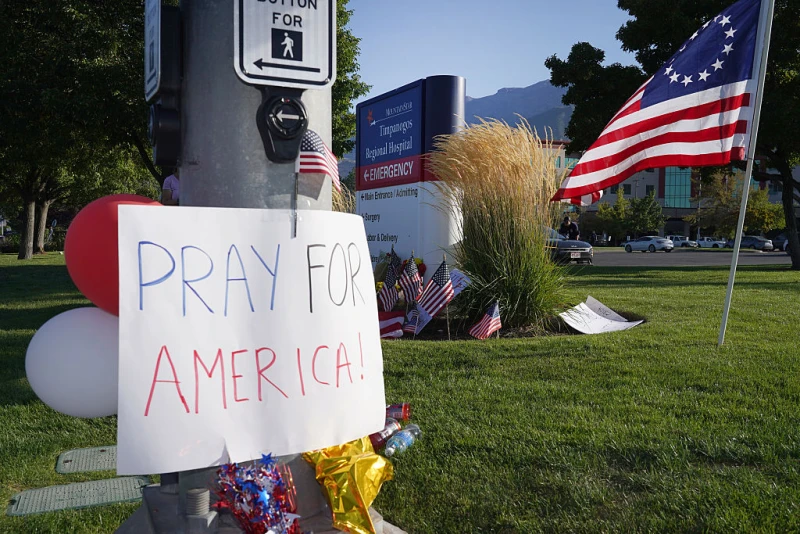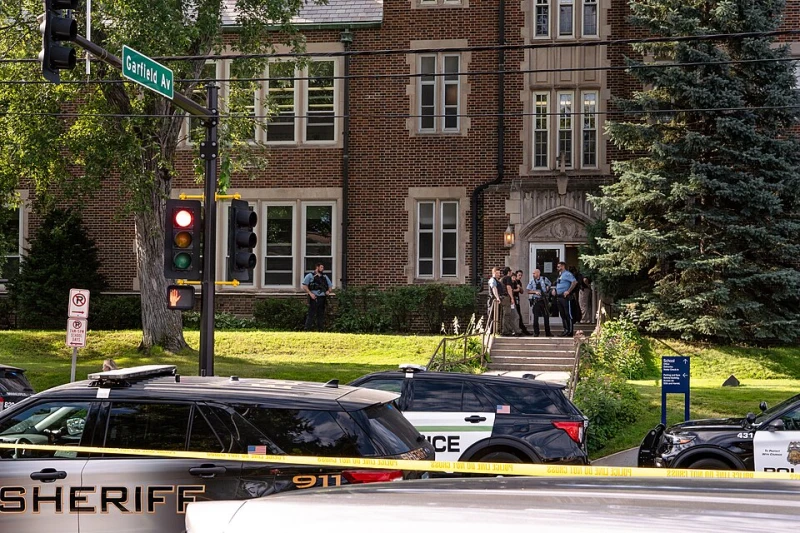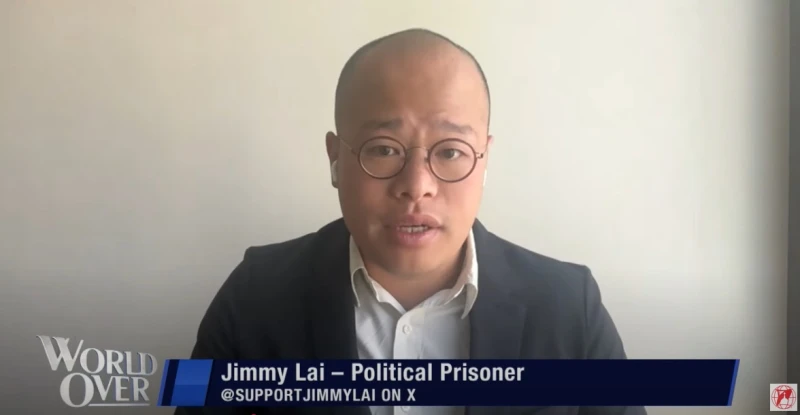

A makeshift memorial is seen at Timpanogos Regional Hospital in honor of political activist Charlie Kirk on Sept. 11, 2025, in Orem, Utah. / Credit: George Frey/Getty Images
Washington, D.C. Newsroom, Sep 11, 2025 / 13:04 pm (CNA).
Faith leaders and political leaders are uniting their voices to condemn politically motivated violence following the assassination of Turning Point USA Founder Charlie Kirk.
Following the confirmation of Kirk’s death by President Donald Trump, some hours after the TPUSA founder was shot at a Utah Valley University event on Wednesday afternoon, Sept. 10, countless faith and political leaders began to speak out against the scourge of political violence.
In a statement, Bishop Michael Burbidge of the Diocese of Arlington, Virginia, railed against the “vicious pattern of political and social disorder” of the past several weeks, citing the Annunciation Catholic school shooting, the murder of Ukrainian refugee Iryna Zarutska, “and now the political assassination of Charlie Kirk, known for his commitment to civil and rational discourse.”
As Americans, we are witnesses in just the past few weeks to a vicious pattern of political and social disorder. At Annunciation Catholic Parish in Minneapolis, the killings of Harper Moyski and Fletcher Merkel, two innocent children. In Charlotte, the murder of Ukrainian refugee…
— Bishop Burbidge (@BishopBurbidge) September 10, 2025
“What we see unfolding in our nation is a vicious pattern of hatreds rooted in the rejection of God, of the dignity of the human person, and the sanctity of the family,” the bishop observed.
“We are living through a perilous moment,” Burbridge continued. “Our challenge is not only one of partisan disagreement, law, and policy, but in a deeper way our challenge is to uphold the central goods of American political life: of faith, of families, and of a national commitment to live together in harmony as brothers and sisters.”
Kirk’s assasination hit Bishop Barron particularly hard
“I am devastated by the news of Charlie Kirk’s death,” Winona-Rochester, Minnesota, Bishop Robert Barron said after news of Kirk’s death was confirmed by President Donald Trump.
Barron went on to reveal that Kirk had been scheduled to appear on his show, “Bishop Barron Presents,” in 10 days. The founder of Word on Fire called Kirk “a great debater and also one of the best advocates in our country for civil discourse, but he was, first and last, a passionate Christian,” recalling that when they first met four years ago, “we didn’t talk much about politics. We talked about theology, in which he had a deep interest, and about Christ. I know I’m joining millions of people around the world in praying that he rests now in the peace of the Lord.”
Moral theologian on root of problem
“You have to be willfully blind not to see that the root of the problem is political hatred, and that that hatred is no more obvious than in those who cannot restrain themselves from badmouthing a man even when he lay dying,” said Edward Feser, a Catholic philosopher and professor at Pasadena City College.
I have nothing against reasonable gun control laws. But you have to be willfully blind not to see that the root of the problem is political hatred, and that that hatred is no more obvious than in those who cannot restrain themselves from badmouthing a man even when he lay dying.
— Edward Feser (@FeserEdward) September 10, 2025
In a joint post showcasing their shared perspective across ideological divides, Princeton legal scholar Robert George and Harvard theology and philosophy professor Cornel West said: “For our nation, this is a moment for deep healing and for bearing witness to the precious humanity of all our brothers and sisters — those with whom we agree and those with whom we disagree.” The pair had appeared together on Kirk’s show recently.
We join our fellow citizens of all faiths in praying for the repose of the soul of Charlie Kirk and for the comfort and consolation of his wife, two small children, and other loved ones.
We recently appeared as guests on Charlie’s podcast, where he engaged us with moral…
— Robert P. George (@McCormickProf) September 11, 2025
Meanwhile, CatholicVote President Kelsey Reinhardt said the tragic shooting “was not merely an assault on one man: It was an assault on the principles of free dialogue, civic order, and human dignity.”
It is with profound grief that I respond to the brutal assassination of Charlie Kirk during his “American Comeback” tour at Utah Valley University. Today, our nation mourns not only the loss of a bold voice for truth, but a husband and father who leaves behind a wife and two…
— Kelsey (Wicks) Reinhardt (@catholickelsey) September 10, 2025
“As Catholics, we affirm with unwavering conviction that every human life is sacred,” Reinhardt continued, offering prayers for the repose of Kirk’s soul. “I call upon every leader, regardless of party or persuasion, to condemn this murder unequivocally. To remain silent in the face of such evil is to be complicit in its advance. Let this tragedy awaken America to the urgent need to recover respect for life, civility in discourse, and courage in the pursuit of truth.”
Heritage Foundation President Kevin Roberts also weighed in, writing: “What a horrific day in American history.”
What a horrific day in American history.
To Charlie’s family, friends, and @TPUSA colleagues: we must never, never, never, never, never, never stop fighting to build the America that he helped make possible. He restored optimism about the American future for millions of… pic.twitter.com/VYP2WUaRiD
— Kevin Roberts (@KevinRobertsTX) September 10, 2025
“To Charlie’s family, friends, and @TPUSA colleagues: We must never, never, never, never, never, never stop fighting to build the America that he helped make possible,” Roberts added.
Netanyahu: Kirk ‘stood tall for Judeo-Christian civilization’
Israeli Prime Minister Benjamin Netanyahu joined world leaders in condemning Kirk’s assasination, writing: “Charlie Kirk was murdered for speaking truth and defending freedom. A lion-hearted friend of Israel, he fought the lies and stood tall for Judeo-Christian civilization.”
Charlie Kirk was murdered for speaking truth and defending freedom. A lion-hearted friend of Israel, he fought the lies and stood tall for Judeo-Christian civilization. I spoke to him only two weeks ago and invited him to Israel. Sadly, that visit will not take place.
We lost an…— Benjamin Netanyahu – בנימין נתניהו (@netanyahu) September 10, 2025
Netanyahu revealed he had spoken to Kirk “only two weeks ago” and had invited the late TPUSA founder to visit Israel.
“Sadly, that visit will not take place,” the prime minister said. “We lost an incredible human being. His boundless pride in America and his valiant belief in free speech will leave a lasting impact.”
In another tribute, California Gov. Gavin Newsom, who hosted Kirk as the first guest on his new podcast, said: “His senseless murder is a reminder of how important it is for all of us, across the political spectrum, to foster genuine discourse on issues that deeply affect us all without resorting to political violence.”
We should all feel a deep sense of grief and outrage at the terrible violence that took place in Utah today. Charlie Kirk’s murder is sick and reprehensible, and our thoughts are with his family, children, and loved ones.
I knew Charlie, and I admired his passion and commitment…
— Governor Gavin Newsom (@CAgovernor) September 10, 2025
“The best way to honor Charlie’s memory is to continue his work: Engage with each other, across ideology, through spirited discourse,” he continued. “In a democracy, ideas are tested through words and good-faith debate — never through violence.”
Newsom added: “Honest disagreement makes us stronger; violence only drives us further apart and corrodes the values at the heart of this nation.
Former Vice President Kamala Harris and President Joe Biden both took to social media as well, with Biden writing in a post: “There is no place in our country for this kind of violence. It must end now. Jill and I are praying for Charlie Kirk’s family and loved ones.”
There is no place in our country for this kind of violence. It must end now. Jill and I are praying for Charlie Kirk’s family and loved ones.
— Joe Biden (@JoeBiden) September 10, 2025
“I am deeply disturbed by the shooting in Utah. Doug and I send our prayers to Charlie Kirk and his family,” Harris wrote, adding: “Let me be clear: Political violence has no place in America. I condemn this act, and we all must work together to ensure this does not lead to more violence.”
I am deeply disturbed by the shooting in Utah. Doug and I send our prayers to Charlie Kirk and his family.
Let me be clear: Political violence has no place in America. I condemn this act, and we all must work together to ensure this does not lead to more violence.
— Kamala Harris (@KamalaHarris) September 10, 2025



